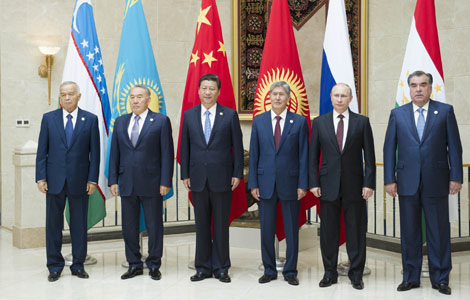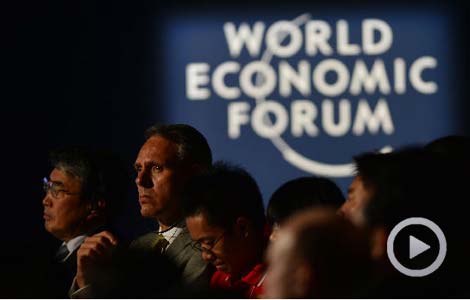Interest rate liberalization on way, policy adviser says
Updated: 2013-09-15 07:12
By Zheng Yangpeng (China Daily)
|
||||||||
China is actively developing rules to establish a deposit-insurance system and to manage financial institutions' bankruptcies - two steps widely believed to herald the final interest rate liberalization, a senior official said on Saturday.
Wu Xiaoling, the National People's Congress' Financial and Economic Committee's deputy director and People's Bank of China's former deputy governor, said the two measures could be completed quickly.
"It could be done in a year without any problems as long as various stakeholders' interests are balanced," she said on the sidelines of the annual China Bankers' Forum organized by China Europe International Business School.
China's commercial banks have resisted the deposit-insurance system because it requires them to designate additional funds for deposit insurance. But analysts have repeatedly said the system is essential for loosening control over the deposit rate ceiling.
The major fear, shared by Wu, is that if the deposit rate is liberalized, banks - especially small banks that previously struggled to attract deposits - will compete to increase rewards for savers to expand their deposit reserves.
China's government has long maintained controls over banks' lending and deposit rates. It has placed a ceiling on what banks can pay on deposits and a floor on what they can charge on loans.
The system helped supercharge China's growth by channeling cheap loans to big businesses while maintaining wide profit margins for banks.
The central bank ended the floor on loan rates on July 20 - a major step toward full interest rate liberalization. It maintained the deposit rate cap, which is 1.1 times the PBOC's benchmark rates. Loosening this limit is believed to be of greater consequence.
Economists have speculated on the move's timing for a while. Optimists said it could materialize within a year or two, while more cautious experts contend it could take years.
But both sides agree it is a critical step toward increasing China's household income and accelerating consumption. The implications for banks are narrower profit margins and fiercer competition.
Wu said it would be unwise to pilot the reforms in the recently announced Shanghai free trade zone because it could create an arbitrage risk for huge money inflows.
"I don't want to see this as a special area for liberalizing interest rates," she said. "The liberalization should be a national program.
"But it is OK to allow convertibility under some of the capital accounts. It could be faster (than in other regions)," she said.
The Shanghai free trade zone's greatest significance, she said, is its model role in removing institutional barriers and facilitating foreign investment and trade.
She also urged the development of specifications for founding private banks. But that can come before the establishment of the deposit-insurance system and financial institutions' bankruptcy rules.
"It takes time to set up a private bank. And a new bank is not likely to go bankrupt soon after its establishment," she said.
Bank of Communications' chief economist Lian Ping said at the forum that banks should be prepared for interest rates' final liberalization. The margin could be narrowed by 0.5 percentage points after the cap is removed.
zhengyangpeng@chinadaily.com.cn
- PBOC ready to liberalize deposit interest rates
- Zhou: Interest rate liberalization on course
- Relax deposit rates in 2015: Minsheng head
- CBRC: Deposit insurance still being planned
- Deposit rate controls should be lifted
- Liberate the deposit rate at the right moment
- Interest rate liberalization, a reform much needed
- Insurance's assumption interest rate liberalized
- Move to free up interest rate 'symbolic'

 China urges release of detained cruise liner
China urges release of detained cruise liner
 Japan launches rocket Epsilon from Kagoshima
Japan launches rocket Epsilon from Kagoshima
 Family networks
Family networks
 Faye Wong announces her divorce
Faye Wong announces her divorce
 Beijing backs truce bid in Syria
Beijing backs truce bid in Syria
 Parents support stricter rules on children's books
Parents support stricter rules on children's books
 Ouch ... bee therapy causes a real buzz
Ouch ... bee therapy causes a real buzz
 Faye Wong and Li Yapeng shock fans with divorce
Faye Wong and Li Yapeng shock fans with divorce
Most Viewed
Editor's Picks

|

|

|

|

|

|
Today's Top News
Japan launches rocket Epsilon from Kagoshima
Chinese Kungfu kicks off New York Mets
US, Russia agree on Syrian chemical weapons
Senior Party official stresses ecological progress
Interest rate liberalization on way
China's top political advisor meets Vanuatu PM
Retrial of Egypt's Mubarak postponed
Four men get death in gang rape
US Weekly

|

|






